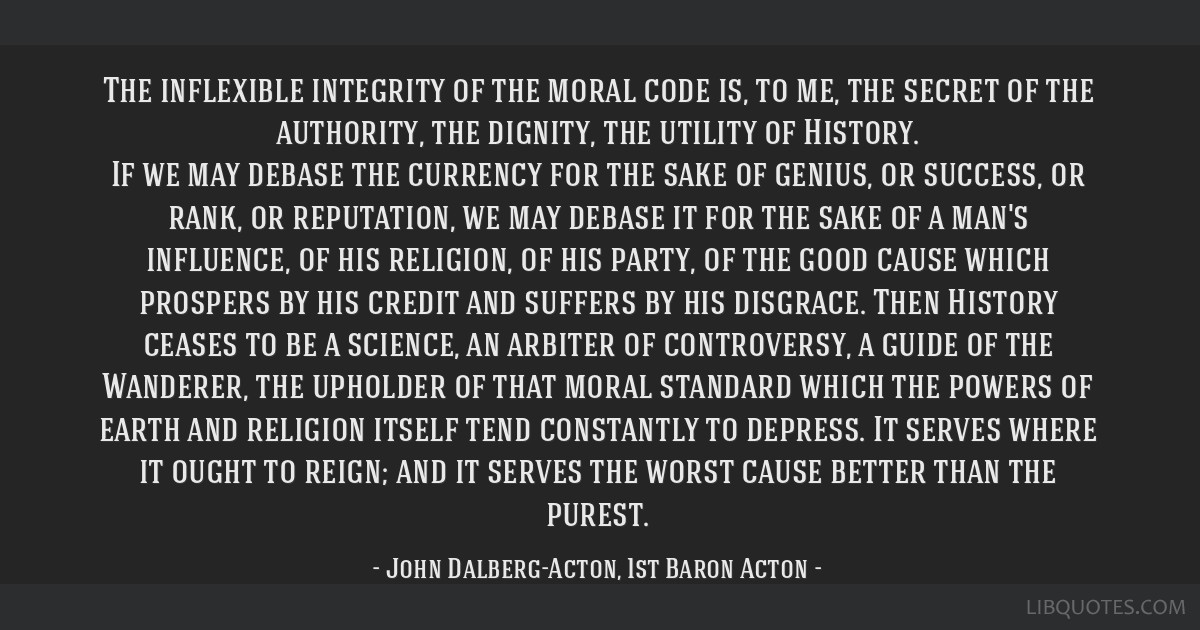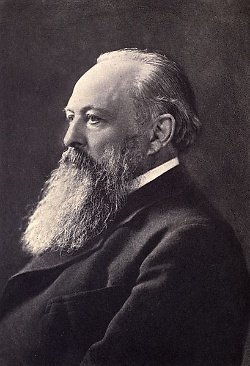The inflexible integrity of the moral code is, to me, the secret of the authority, the dignity, the utility of History.
If we may debase the currency for the sake of genius, or success, or rank, or reputation, we may debase it for the sake of a man's influence, of his religion, of his party, of the good cause which prospers by his credit and suffers by his disgrace. Then History ceases to be a science, an arbiter of controversy, a guide of the Wanderer, the upholder of that moral standard which the powers of earth and religion itself tend constantly to depress. It serves where it ought to reign; and it serves the worst cause better than the purest.
Letter to Mandell Creighton (5 April 1887), published in Historical Essays and Studies, by John Emerich Edward Dalberg-Acton (1907), edited by John Neville Figgis and Reginald Vere Laurence, Appendix, p. 504; also in Essays on Freedom and Power (1972)























